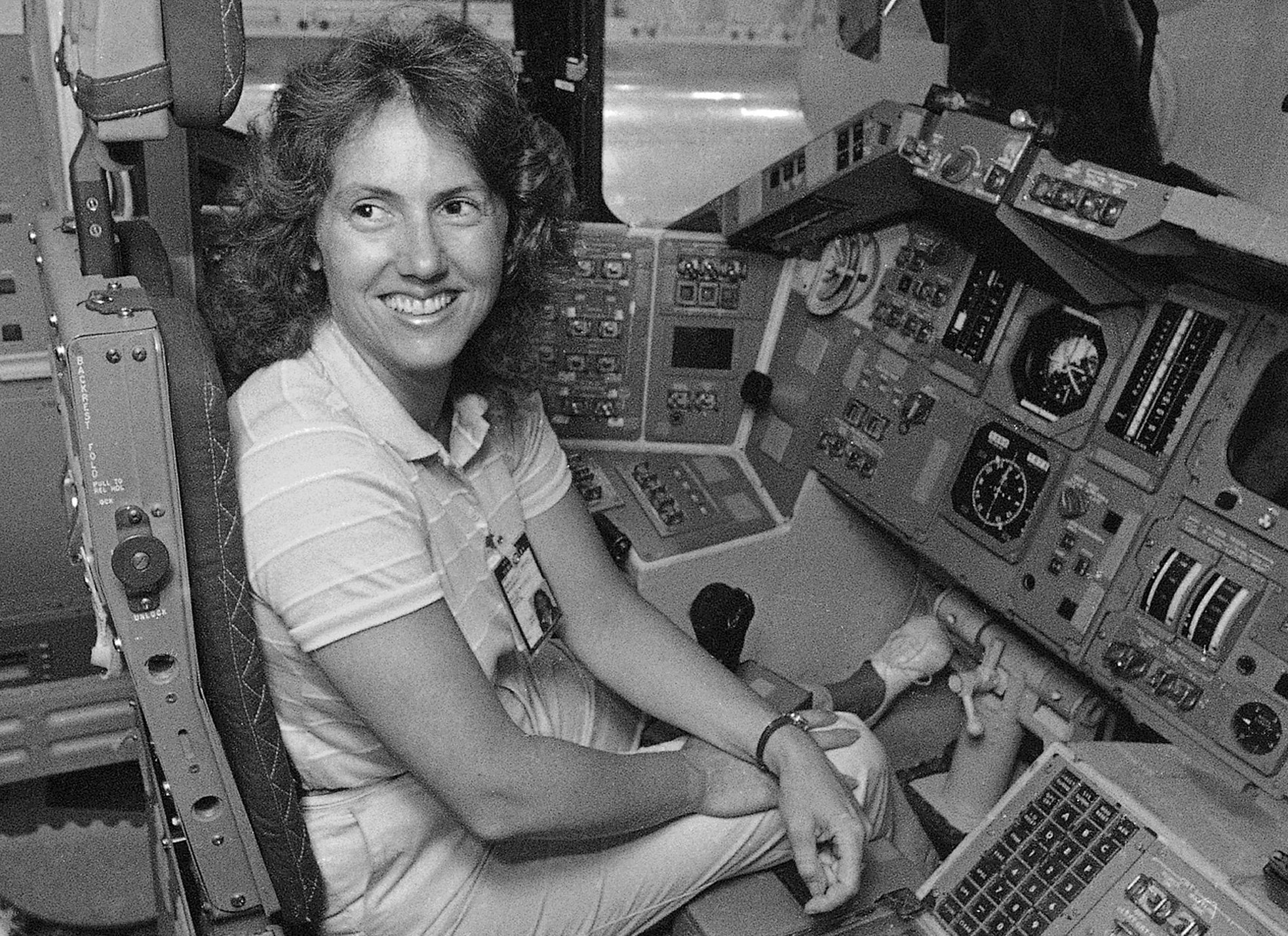
By MARCIA DUNN
AP Aerospace Writer
CAPE CANAVERAL, Fla. (AP) — Christa McAuliffe’s lost lessons are finally getting taught in space.
Thirty-two years after the Challenger disaster, a pair of teachers turned astronauts will pay tribute to McAuliffe by carrying out her science classes on the International Space Station. As NASA’s first designated teacher in space, McAuliffe was going to experiment with fluids and demonstrate Newton’s laws of motion for schoolchildren. She never made it to orbit: She and six crewmates were killed during liftoff of space shuttle Challenger on Jan. 28, 1986.
Astronauts Joe Acaba and Ricky Arnold will perform some of McAuliffe’s lessons over the next several months. Acaba shared the news during a TV linkup Friday with students at her alma mater, Framingham State University near Boston.
“I can’t think of a better time or a better place to make this announcement,” Acaba said. He and Arnold “look forward to helping to inspire the next generation of explorers and educators.”
Four lessons — on effervescence or bubbles, chromatography, liquids and Newton’s laws — will be filmed by Acaba and Arnold, then posted online by the Challenger Center, a not-for-profit organization supporting science, technology, engineering and math education.
The center’s president, Lance Bush, said he’s thrilled “to bring Christa’s lessons to life.”
“We are honored to have the opportunity to complete Christa’s lessons and share them with students and teachers around the world,” Bush said in a statement.
On Friday, he thanked Acaba, who along with two station crewmates fielded questions from Framingham State students about life in space.
NASA’s associate administrator for education, Mike Kincaid, said the lessons are “an incredible way to honor and remember” McAuliffe as well as the entire Challenger crew.
Four of the six lessons that McAuliffe planned to videotape during her space flight will be done. A few will be altered to take advantage of what’s available aboard the space station.
The lessons should be available online beginning this spring.
Acaba returns to Earth at the end of February. Arnold flies up in March. NASA is billing their back-to-back missions as “A Year of Education on Station.”
The two were teaching middle school math and science on opposite sides of the world — Acaba in Florida and Arnold in Romania — when NASA picked them as educator-astronauts in 2004.
McAuliffe was teaching history, law and economics at Concord High School in New Hampshire when she was selected as the primary candidate for NASA’s teacher in space project in 1985.
Her backup, Barbara Morgan, is on the Challenger Center’s board of directors. Morgan was NASA’s first educator-astronaut, flying on shuttle Endeavour in 2007 and helping to build the space station.
McAuliffe planned to keep a journal during her space shuttle mission, and one college student asked if the astronauts were doing the same. Acaba said he’s been making entries in a leather-bound journal during his 14 years as an astronaut. He writes in it every night before he goes to sleep on the space station.
“When I’m sitting on my porch sometime in the future, I’ll look back on all these great times,” Acaba said.



















